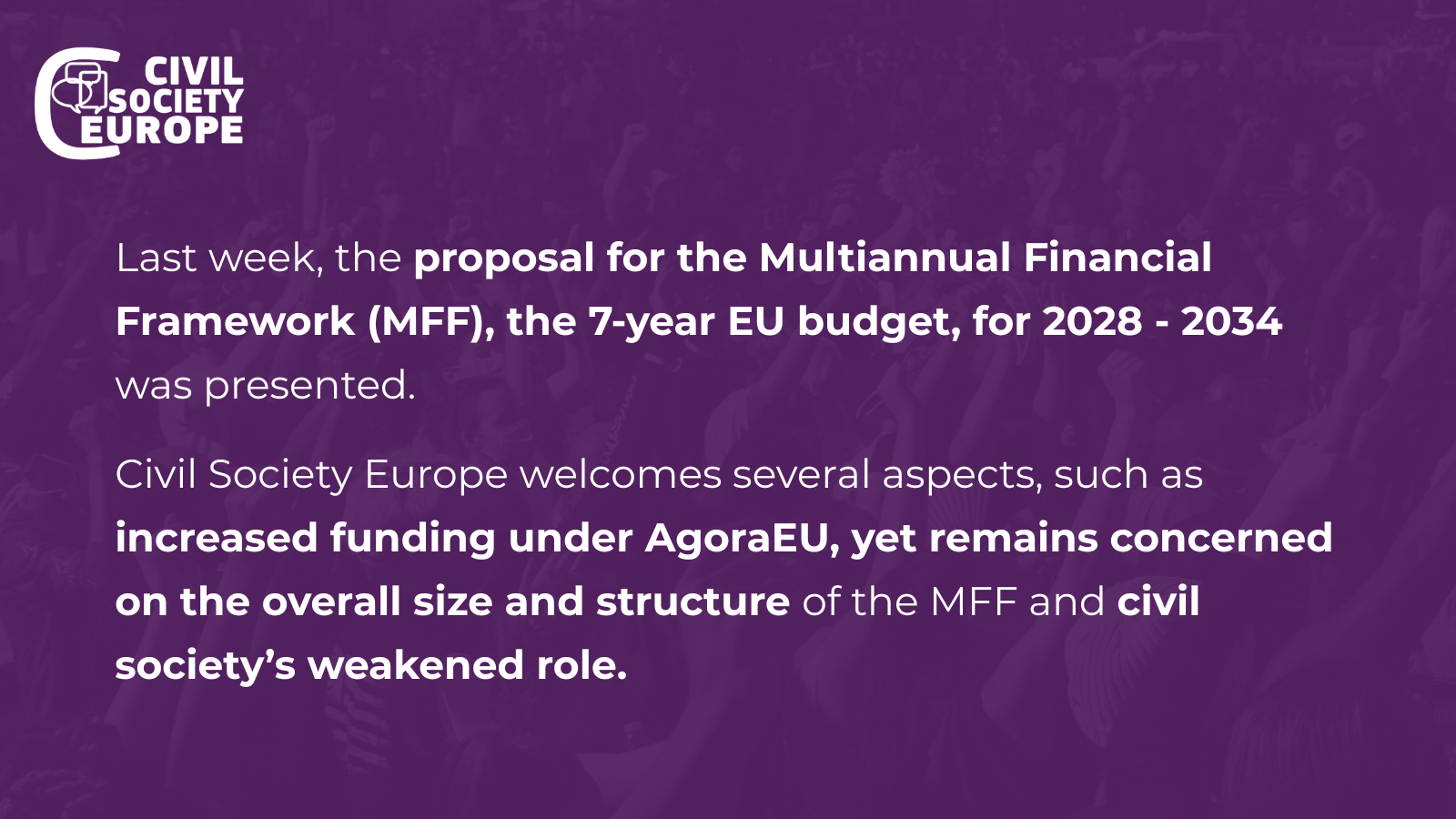The proposal for the Multiannual Financial Framework (MFF), the 7-year EU budget, for 2028 – 2034 is out. How does it hold up for civil society?
In our reaction to the MFF, we find that we remain concerned by the current proposal, both in its size and structure. In a time when Europe is confronted with rising challenges, a slightly increased, renationalised budget which deprioritises social cohesion is not the way forward. In the context of attacks on civic space at national and EU level, we support the increase of support to civil society through the AgoraEU programme. However, we are highly concerned by the lack of structures to involve civil society in the development and management of the programmes, and by the apparent widespread disappearance of structural support to EU-wide civil society networks through operating grants.
We comment on several key aspects of the MFF as it relates to civil society, including:
- The size of the MFF, which we find insufficient to meet its new priorities
- The proposed new revenue sources (called ‘new own resources’) and permanent crisis mechanism
- The merging of shared management programmes into a single programme under the National and Regional Partnership Plans (NRPs), the merging of CERV with Creative Europe (under AgoraEU), the merging of the ‘LIFE programme’ into the European Competitiveness Fund, and the merging of Erasmus+ with the European Solidarity Corps
- The application of principles across the entire MFF, such as the ‘Do no significant harm’ (DNSH) and gender equality principles
- The new AgoraEU programme and its effect on civil society
- Civil society’s lack of involvement and structural support across the programmes
The MFF will shape the direction of the EU for the years to come. Civil society is ready to be proactive in proposing the needed solutions for our communities, to protect and promote civic space, and to guarantee a fair, sustainable, and equal society for all those living on our continent. We stand ready to work with the Parliament and the Council to remove the clear pitfalls of the proposal on the table and take the necessary steps towards a new MFF with clearer structures and better support for civil society.


